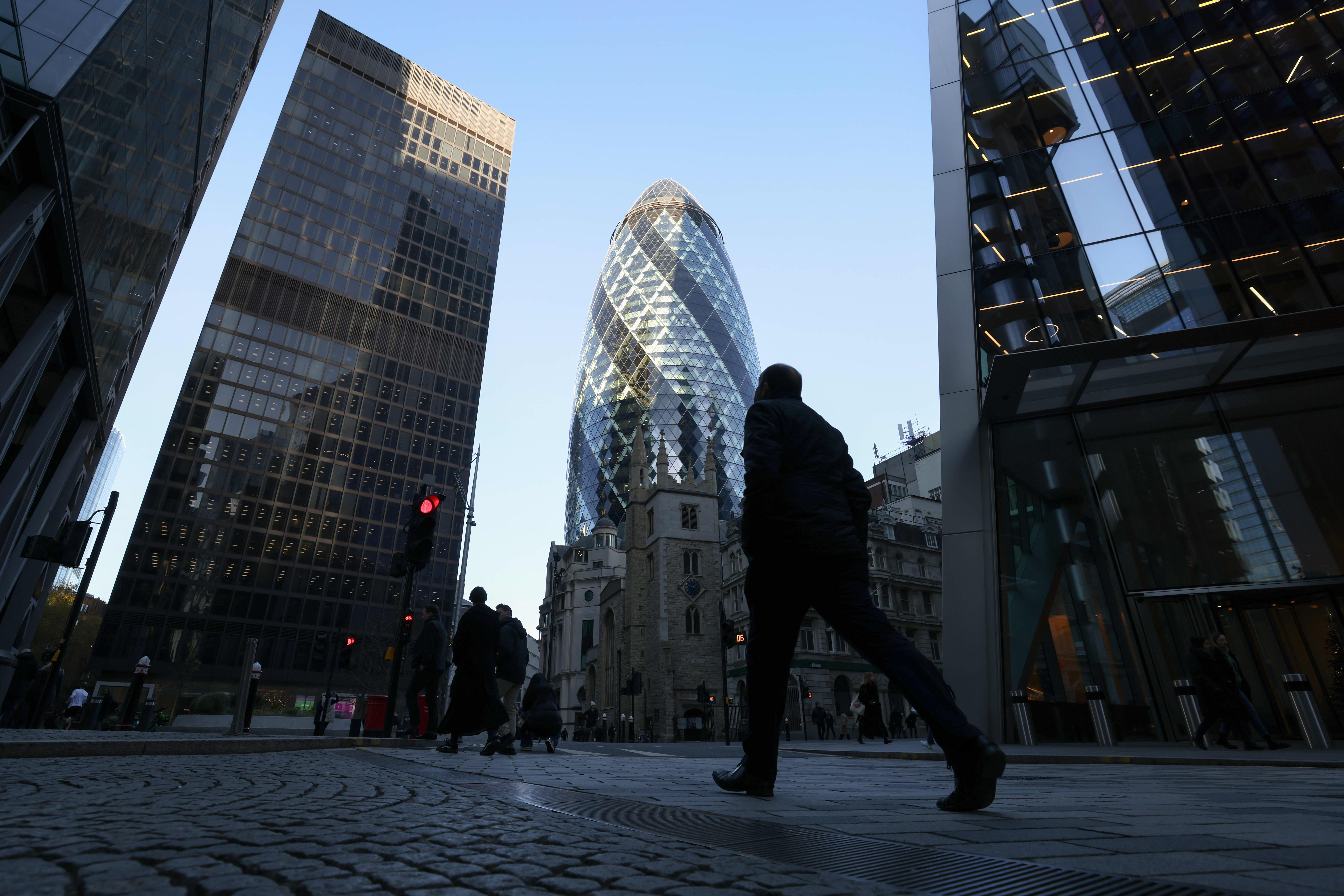
UK inflation data paints a picture of the British economy.
Bloomberg/Contributor/Getty Images
LONDON – The United Kingdom’s inflation rate fell sharply in April, as energy prices fell and the impact of Russia’s invasion of Ukraine began to withdraw from the annual comparison of consumer prices.
Headline consumer price inflation came in at 8.7% year-on-year, the Office for National Statistics said Wednesday, down from 10.1% in March but higher than a consensus estimate of 8.2% from a Reuters poll of economists.
The National Bureau of Statistics said in its report that “electricity and gas prices contributed 1.42 percentage points to the annual decline in inflation in April, as last April’s rise declined from the annual comparison, but this component still contributed 1.01 percentage points to annual inflation.”
“Prices of food and non-alcoholic beverages continued to rise in April and contributed to higher annual inflation, however, the annual inflation rate for food and non-alcoholic beverages eased, from 19.2% in the year through March 2023, to 19.1% in the year through April 2023 .”
However, the Office for National Statistics said its indicative model estimates indicated that the annual rate of inflation for food and non-alcoholic beverages was still the second-highest seen in more than 45 years.
On a monthly basis, consumer prices rose 1.2%, above the consensus estimate of 0.8%.
The consumer price index including housing costs for homeowners (CPIH) rose 7.8% in the 12 months through April 2023, down from 8.9% in March, while the core CPI (excluding volatile energy, food, alcohol and tobacco prices) rose 6.8. %, up from 6.2% in March, which will concern the Bank of England.
British inflation remained stubbornly high even as the economy defied expectations of a recession, prompting the Bank of England to raise interest rates for the 12th consecutive time, to 4.5% at its last meeting earlier this month.
Economists widely expect a further rise at their next meeting as inflation remains more steady in the UK than in comparable major economies, while the labor market remains tight and Governor Andrew Bailey warns of a wage price spiral.
On Tuesday, Bailey acknowledged to lawmakers there were “very big lessons to be learned” from the bank’s failure to predict the strength and persistence of inflation.
As British households continue to grapple with soaring food and energy bills, workers in a range of sectors have launched mass strikes in recent months amid disagreements over pay and terms.
The right direction, but a long way to go
Suren Theroux, director of economics at the Institute of Chartered Accountants in England and Wales, said the return to the single-digit headline rate indicated the UK had “turned the corner” in combating inflation.
He expects more big falls over the summer, when Britain’s energy regulator Ofgem is expected to lower the cap on energy prices, leading to lower bills from July.
“The negative impact on customer demand from a cold job market, higher taxes and the delayed effect of higher interest rates could mean that inflation is falling more quickly than the Bank of England expected,” he said.
“The fall in inflation in April is large enough for the MPC to keep interest rates on hold next month, but if it continues to risk overtightening, it could exacerbate the cost of living crisis and put pressure on businesses.”
Richard Carter, head of fixed interest research at Quilter Cheviot, said Wednesday’s fall shows things are heading in the “right direction,” but noted there’s still “a very long way to go” as inflation remains “surprisingly high.”
However, Carter noted that such sharp declines are unlikely in the coming months, particularly if the International Monetary Fund’s recent projections of a more resilient UK economy are accurate.
“While the Bank of England has made no promises that it is nearing the end of a cycle of hikes in terms of interest rates, it will be relieved to see inflation finally budge,” Carter said.
“As long as wage growth continues to increase, the Bank will keep the option of raising interest rates further on the table – especially if core inflation remains persistently high.”

“Web maven. Infuriatingly humble beer geek. Bacon fanatic. Typical creator. Music expert.”





More Stories
Dow Jones Futures: Microsoft, MetaEngs Outperform; Robinhood Dives, Cryptocurrency Plays Slip
Strategist explains why investors should buy Mag 7 ‘now’
Everyone gave Reddit an upvote